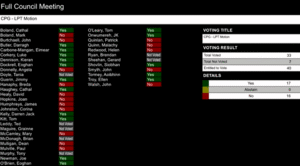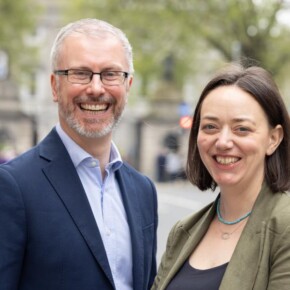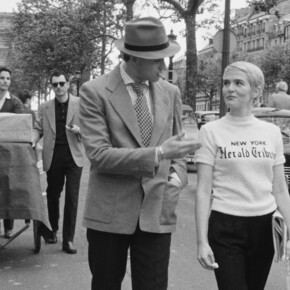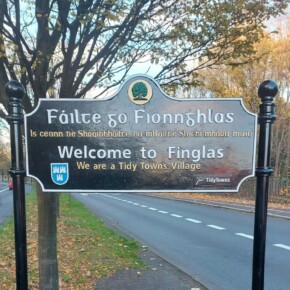Cracks in Fingal County Council coalition over Local Property Tax
Mike Finnerty 16 Jul 2025
Fingal County Councillors have voted to reduce Local Property Tax by 5% – but not without a fight.
The decision was made at this week’s meeting of Fingal County Council, with the process being brought up by a few months as the central government asked local authorities to submit their budgets earlier this year.
Last June, a coalition of Fianna Fáil, Fine Gael and Labour councillors banded together to run Fingal County Council between now and 2029, and there were some cracks in the coalition over the issue.
The Corporate Policy group recommended that the rate be cut by 5%.
Fianna Fáil and Fine Gael councillors wanted the Local Property Tax to go down by 5%; Labour and Social Democrats councillors did not want the rate to be adjusted, and wished to keep the rate as it currently stands.
Sinn Féin’s four councillors, Solidarity’s two councillors and Independents4Change councillor Dean Mulligan wanted the Local Property Tax cut as much as possible (15%), arguing that it should be cut as a cost-of-living-crisis measure.
Sinn Féin councillor John Smyth said the likes of the Local Property Tax were characteristic of “hikes, taxes and temporary measures that are being imposed on the average person for far too long.”
Smyth said, “we can’t keep squeezing every little last drop out of working families; they need a break.”
Ongar councillor Angela Donnelly remarked, “to listen to other speakers, you’d think we’re running Fingal on an absolute shoestring budget.”
The Sinn Féin councillor said, “we want to see local government thrive as much as anyone does, but not on the backs of ordinary Joe soaps again and again.”
“Those ordinary people bailed out the banks; when is the right time to give ordinary people a break? When will we ever say ordinary people deserve a break, now? Not in this chamber.”
Comments from Social Democrats councillor Joan Hopkins reveal the subtle differences in opinion between the Soc Dems and Sinn Féin.
“I agree with my Sinn Féin colleagues that the cost of living is too high, however, this is the one opportunity we have to get some much-needed funds for our local council.”
Hopkins said that the free events and public services provided by Fingal County Council are one of the times when people appreciate what local government does for them, and the source of funding should be protected.

The results of the vote
Fianna Fáil councillor Eoghan O’Brien, who is a member of the aforementioned Corporate Policy Group, said, “we believe the 5% reduction is the most prudent way to move forward.”
“We want to protect services and protect in our community; it’s not feasible or realistic to say we can reduce it by the full 15% without turning around and saying ‘well that actually means our events program is gone’, these are all things we are funding with LPT expenditure.”
O’Brien said the change was “minimal” and as such, Fingal County Council could afford to cut it.
“Credit to those for those who are pushing for no reduction whatsoever, but I disagree,” but criticised councillors looking for a 15% reduction, saying “that is not how you run a council whatsoever.”
Solidarity councillor John Burtchaell said, “as a socialist, myself and councillor Redwood are opposed to taxing the family home on principle.”
“It isn’t really a property tax, it’s a tax on the family home,” he said.
“It has its origins in the collapse of the banks and the subsequent bailout,” and said it was a tax on the working class.
Fianna Fáil councillor Darragh Butler remarked, “you’ve got to love a la carte socialism; it’s good to know that mansions will be getting their full 15% reduction.”
“You can talk about the IFSC all you like; your simplistic socialism will simply drive every job there to Luxembourg.”
Butler said, “we’ve got to be realistic here” with regards to the issue.
The Swords councillor remarked that councillors were praising events such as the Taste Of Fingal, yet were the same councillors looking for a 15% cut.
He argued that if the rates were cut by 15%, events like that would not be able to take place.
“If you want to keep the things you praise in this chamber for the next 11 months without a sense of irony – we’ve got to be realistic here and stop being populist.”
Labour councillor John Walsh said, “it bears repeating; we need to take a responsible response to taxation.”
“We need to raise revenue for services,” the Castleknock councillor said.
“Of course, there are failures of government policy and there are huge issues in terms of cost of living, but that doesn’t absolve us as council members from providing funding and adequately financing essential services.”
“You don’t address the cost of living by a tax cut; the way you address it is by giving people decent, high-quality public services they can use.”
Tellingly, the vote only passed by 17 votes to 16, with seven members of the council absent.
Drilling down into the full results of the vote, Aontú councillor Ellen Troy voted with Fianna Fáil and Fine Gael, with that vote getting the motion over the line.
The most interesting wrinkle is the Labour councillors at the meeting breaking ranks with Fine Gael and Fianna Fáil to vote down the motion (and indeed, had all their councillors been present at the meeting and voted no, it would have been enough to defeat the Fianna Fáil and Fine Gael motion).
The Local Property Tax isn’t the main source of funding for Fingal County Council or other local authorities (the LPT and its associated discretionary funding are used for events across Fingal County), but the fact that there’s a split between the governing coalition on the council does give food for thought.
Last summer, when Labour secured its best set of results on Fingal County Council since 2009, attempts were made to form a coalition between them, Sinn Féin, the Social Democrats, Solidarity and various like-minded independents.
In the end, the talks fell apart owing to this exact issue; the property tax.
Much was made of Labour and the Greens working with Fianna Fáil and Fine Gael on Dublin City Council in last week’s edition, snubbing Sinn Féin and the Social Democrats in the process, but Labour and the Social Democrats sharing the same opinion on a substantial issue such as the LPT points towards another area where the two parties share a common ground.
Sinn Féin and Solidarity’s charges that the LPT is a tax on the working class reveal the difference between the soft left of Irish politics and parties to the left of them.
As for the government parties, their hopes of having a subservient coalition partner like Labour to shift the blame to, ala the Greens, haven’t quite panned out.
In a week when tensions between Fianna Fáil and Fine Gael boiled over on Dublin City Council and within the governing coalition in the Dáil, their main coalition partner voting against them on a major issue like taxation is another headache the government doesn’t need heading into its summer break.











